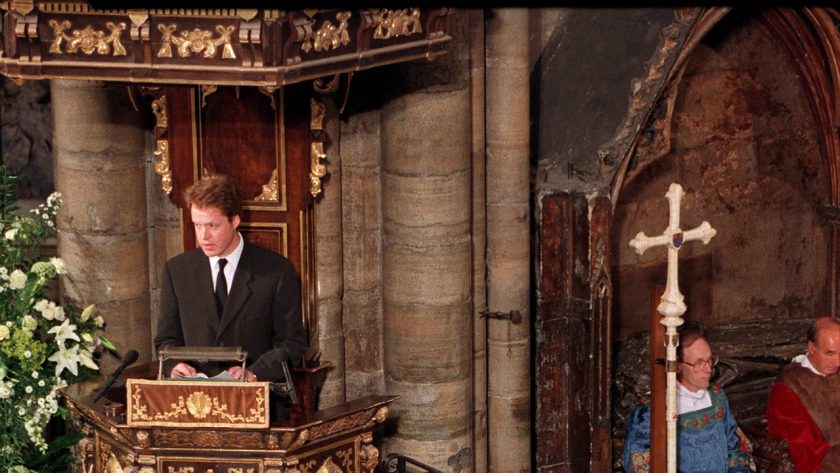The Crown season six, part one, ends with scenes featuring the show’s actors intercut with archival footage. Imelda Staunton’s Queen Elizabeth addresses the nation after the death of Prince Diana, as video plays of the actual downtrodden Prince William and Prince Harry marching behind their mother’s casket down London’s Mall. It’s a somber combination of clips and also one darkly familiar to the audience: As an adult, the real-life Prince Harry has spoken out about how much trauma that public display of grieving caused him. “My mother had just died, and I had to walk a long way behind her coffin, surrounded by thousands of people watching me while millions more did on television. I don’t think any child should be asked to do that, under any circumstances,” he told Newsweek in 2017. He reiterated these feelings in his memoir, Spare. “I remember feeling numb. I remember clutching my fists. I remember keeping a fraction of Willy always in the corner of my vision and drawing loads of strength from that.”
Yet, by stopping the final half of the series at that point, The Crown also misses the chance to include a poignant real-life moment that not only puts Diana’s life into perspective but also explains the butterfly effect her death became: her brother Charles, Earl of Spencer’s eulogy.
On September 6, 1997, Spencer delivered the official oration at Westminster Abbey during his sister’s funeral. In the crowd that day? The royal family and every living prime minister of the United Kingdom, as well as an audience of 2.5 billion watching from their televisions at home.
He began with a touching reflection on his sister’s legacy. “Diana was the very essence of compassion, of duty, of style, of beauty,” he said. “All over the world, a standard-bearer for the rights of the truly downtrodden, a very British girl who transcended nationality. Someone with a natural nobility who was classless and who proved in the last year that she needed no royal title to continue to generate her particular brand of magic.”
He then moved into discussing the more tragic aspects of her life. Diana, he said, was under constant siege from the paparazzi. She felt trapped in England and dreamed of leaving it. She felt “sneered at by the media.” “It is a point to remember that of all the ironies about Diana, perhaps the greatest was this—a girl given the name of the ancient goddess of hunting was, in the end, the most hunted person of the modern age,” he said, the anger in his voice palpable. “She would want us today to pledge ourselves to protecting her beloved boys, William and Harry, from a similar fate, and I do this here, Diana, on your behalf. We will not allow them to suffer the anguish that used regularly to drive you to tearful despair.”



